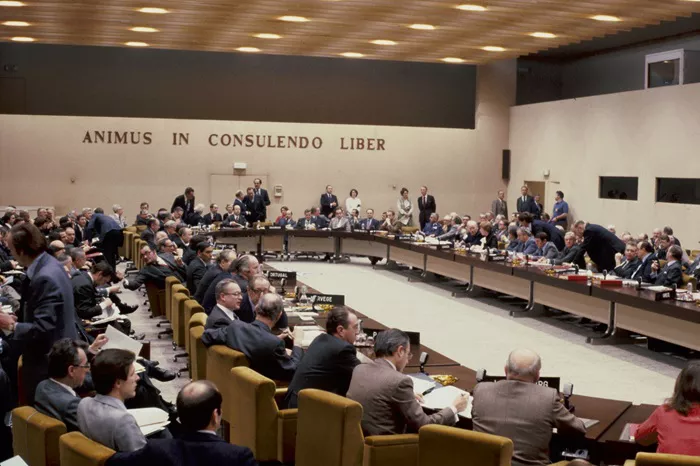History, like a grand tapestry, weaves together the threads of time, creating a rich and intricate narrative of human experience. Each day contributes its own unique chapter to this ongoing story, marking moments of triumph, tragedy, and transformation. May 28 stands as a significant date in the annals of history, bearing witness to a myriad of events that have shaped the course of civilizations around the world. In this article, we embark on a journey through time to explore the notable occurrences that have occurred on this day, illuminating the tapestry of history with each passing moment.
The Fall of Constantinople (1453)
May 28, 1453, marks a pivotal moment in the history of the Byzantine Empire with the fall of Constantinople, its capital city. After a prolonged siege by the Ottoman Empire led by Sultan Mehmed II, the formidable walls of Constantinople were breached, leading to the city’s capture. The fall of Constantinople not only marked the end of the Byzantine Empire but also facilitated the expansion of the Ottoman Empire into Europe, altering the geopolitical landscape of the region.
Golden Hind Circumnavigates the Globe (1580)
On May 28, 1580, the Golden Hind, commanded by Sir Francis Drake, completed its historic circumnavigation of the globe, becoming the second ship to accomplish this feat after Ferdinand Magellan’s expedition. Drake’s voyage not only solidified England’s maritime prowess but also brought wealth and fame to the nation through the acquisition of treasure and the exploration of new territories.
American Civil War: Battle of Totopotomoy Creek (1864)
In the midst of the American Civil War, May 28, 1864, witnessed the Battle of Totopotomoy Creek in Virginia. As part of the Overland Campaign, Union and Confederate forces clashed in a fierce engagement that resulted in heavy casualties on both sides. Although inconclusive, the battle foreshadowed the brutal fighting that would characterize the later stages of the Civil War.
The First Monaco Grand Prix (1929)
May 28, 1929, marked the inaugural running of the Monaco Grand Prix, one of the most prestigious automobile races in the world. Taking place on the streets of Monte Carlo, the Grand Prix attracted top drivers and enthusiasts from around the globe, solidifying its reputation as a premier event in motorsport history.
John F. Kennedy’s Visit to Ireland (1963)
On May 28, 1963, President John F. Kennedy embarked on a historic visit to Ireland, the homeland of his ancestors. Kennedy’s visit was met with an outpouring of affection and excitement from the Irish people, as he was welcomed as a hero returning to his roots. His memorable visit served to strengthen the bond between the United States and Ireland while affirming the pride of the Irish diaspora worldwide.
NATO’s Dual-Track Decision (1979)
May 28, 1979, marked a significant moment in the Cold War era with NATO’s adoption of the “dual-track” decision regarding the deployment of intermediate-range nuclear missiles in Europe. This decision, which aimed to counter the Soviet Union’s military buildup, involved both arms control negotiations with the USSR and the deployment of Pershing II and cruise missiles in NATO countries. The dual-track approach reflected NATO’s commitment to maintaining a credible deterrent while pursuing diplomatic efforts to reduce nuclear tensions.
The Birth of Ian Fleming (1908)
On May 28, 1908, Ian Fleming, the British author best known for creating the iconic character of James Bond, was born in London, England. Fleming’s thrilling espionage novels featuring the suave and sophisticated agent 007 captured the imaginations of readers worldwide, spawning a beloved literary and cinematic franchise that endures to this day. Fleming’s legacy as a master storyteller continues to resonate across generations, leaving an indelible mark on popular culture.
The Formation of Amnesty International (1961)
May 28, 1961, witnessed the founding of Amnesty International, a global human rights organization dedicated to promoting and defending human rights around the world. Established by British lawyer Peter Benenson, Amnesty International has since grown into one of the most influential and respected advocacy groups, advocating for the release of prisoners of conscience, ending torture and the death penalty, and combating impunity for human rights abuses.
Jacques Chirac Becomes President of France (1995)
On May 28, 1995, Jacques Chirac was inaugurated as the President of France, succeeding François Mitterrand. Chirac’s presidency marked a period of political transition in France, as he sought to implement conservative economic reforms while maintaining the country’s social welfare system. His tenure in office was characterized by both domestic challenges, including strikes and protests, and international engagements, such as France’s role in European integration and its foreign policy in Africa and the Middle East.
NASA’s Phoenix Mars Lander Touches Down (2008)
On May 28, 2008, NASA’s Phoenix Mars Lander successfully touched down on the surface of Mars, beginning its mission to study the planet’s polar region and search for evidence of past or present microbial life. The Phoenix lander, equipped with instruments to analyze soil and ice samples, provided valuable insights into Mars’ geological history and potential habitability, advancing our understanding of the Red Planet’s environment and potential for life.
Conclusion
May 28 stands as a testament to the tapestry of history, woven together by the threads of human endeavor and resilience. From triumphs to tragedies, from discoveries to conflicts, each event commemorated on this day serves as a reminder of the richness and complexity of the human experience. As we reflect on the significant moments that have occurred on May 28, we gain a deeper appreciation for the interconnectedness of past, present, and future, and the enduring legacy of those who have shaped the course of history.

